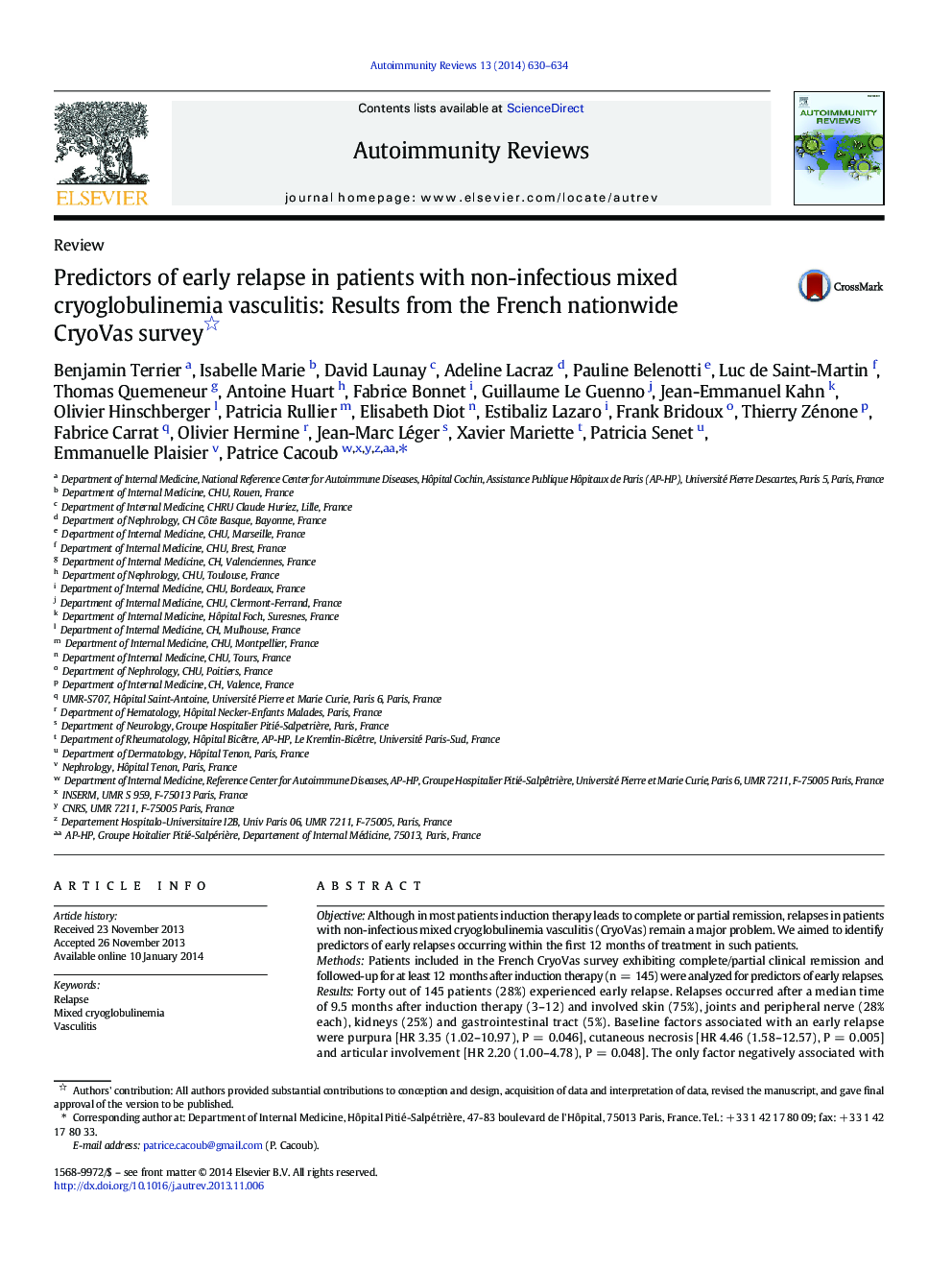| Article ID | Journal | Published Year | Pages | File Type |
|---|---|---|---|---|
| 3341594 | Autoimmunity Reviews | 2014 | 5 Pages |
ObjectiveAlthough in most patients induction therapy leads to complete or partial remission, relapses in patients with non-infectious mixed cryoglobulinemia vasculitis (CryoVas) remain a major problem. We aimed to identify predictors of early relapses occurring within the first 12 months of treatment in such patients.MethodsPatients included in the French CryoVas survey exhibiting complete/partial clinical remission and followed-up for at least 12 months after induction therapy (n = 145) were analyzed for predictors of early relapses.ResultsForty out of 145 patients (28%) experienced early relapse. Relapses occurred after a median time of 9.5 months after induction therapy (3–12) and involved skin (75%), joints and peripheral nerve (28% each), kidneys (25%) and gastrointestinal tract (5%). Baseline factors associated with an early relapse were purpura [HR 3.35 (1.02–10.97), P = 0.046], cutaneous necrosis [HR 4.46 (1.58–12.57), P = 0.005] and articular involvement [HR 2.20 (1.00–4.78), P = 0.048]. The only factor negatively associated with an early relapse during follow-up was the achievement of complete immunological response [HR 0.07 (0.01–0.51), P = 0.009]. The use of corticosteroids plus rituximab or cyclophosphamide tended to be associated negatively with early relapse [HR 0.43 (0.17–1.08), P = 0.07].ConclusionIn patients with non-infectious CryoVas, main predictors of early relapses after initial remission are purpura, articular involvement, and cutaneous necrosis. The absence of complete immunological response during follow-up was associated with early relapse. These findings may help in adapting future treatment strategies.
